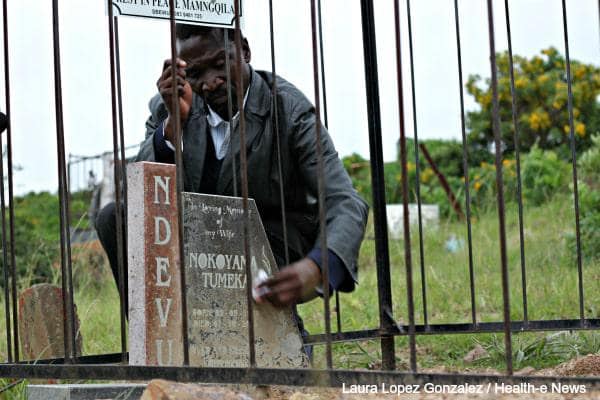
Scholars and academics from leading universities around the world have added their voices to the call for the implementation of a tax on sugary drinks in South Africa.
Read More »Globally renowned health experts add their names to call for sugar tax in SA
Breast cancer is not an illness that affects only those who speak English and live in the city, says survivor Nelisa Sipamia, who grew up in a rural area, dependent on the public health care system.
Read More »Breast cancer survivor: “Let’s speak about cancer in our language”
Dr Marais, CEO of the Independent Clinical Oncology Network (ICON), examines the high cost of cancer in South Africa and the financial impact on the patient and practitioner.
Read More »Cancer: It’s all about the price tag
Innovators, policymakers, and investors gathered in Johannesburg last month for the South Africa Innovation Summit and after this, it is worth asking, are we as a nation doing enough to finance health innovation and technology? Dr Tony Bunn discusses...
Read More »Funding for health innovation: How does South Africa measure up?
There’s a dire shortage of medical specialists, yet provinces have cut budgets for their training. Specialists need to be involved in planning the NHI roll-out to prevent such things from happening, writes South African Society of Anaesthesiologists CEO Natalie Zimmelman.
Read More »National Health Insurance: Bring in the specialists
South Africa has committed itself to reaching the world’s latest batch of ambitious targets, but it will not meet them without sex workers, writes Ntokozo Yingwana.
Read More »Opinion: Sex workers essential to meeting new HIV targets
In South Africa's two-tiered healthcare system, no one wins, testify doctors as the Competition Commission Inquiry into Private Healthcare resumes, writes Section27.
Read More »‘We can do better,’ doctor tells health market inquiry
When you're a doctor operating along South Africa’s drug routes, anything can happen and when it does, reality and relations can change in an instant, writes one rural doctor.
Read More »Medicine, morality on South Africa’s drug routes
About one in nine South African tuberculosis (TB) patients are also living with type 2 diabetes, according to Stellenbosch University medical biologist Dr Katharina Ronache. Ronacher warns rising rates of co-infection could have consequences for treatment outcomes.
Read More »One in nine TB patients co-infected with diabetes
One year after the South African Human Rights Commission found the Eastern Cape had failed to uphold citizens’ right to emergency care, communities are still waiting for answers, writes Ntsiki Mpulo.
Read More »Death, dying and silence in the Eastern Cape
Two types of conditions can spell death in South Africa’s rural areas, and I just diagnosed a patient with one of them, writes a rural doctor in the latest installment of our Rural Reflections blog.
Read More »South Africa’s rural cancer conundrum
In a country plagued by endemic violence and social inequality, psychologists cannot constrain themselves to the four walls of consulting rooms. To meet the needs of its patients, psychology must rethink its identity and voice in the fight for social justice, writes Garret Barnwell.
Read More »Opinion: Psychologists playing a defensive game
For hundreds of murdered South African women, the last face they see is a face they used to love. Almost 60 percent of women murdered annually may die by their partner’s hands but who is counting the women who die by their own hands when violence at home becomes too much, asks Garret Barnwell.
Read More »[Updated]The hidden violence: Women and attempted suicide
Holiday lights and decorations are already popping up across South Africa. As children anticipate gifts and a holiday from school, families and friends will gather for meals together to toast the season. Tragically, the cooking of food is actually a gateway to a leading cause of child death, writes Keith Klugman.
Read More »A simple holiday gift: Safe cooking stoves for families
In rural areas, the distance between health facilities can span hundreds of kilometres often covered via poor roads. In places like these, the difference between a health care worker having cell phone reception or seeing the familiar “No service” on a cell phone screen can be a matter of life or death.
Read More »Network providers ‘drop the call’ on rural patients














